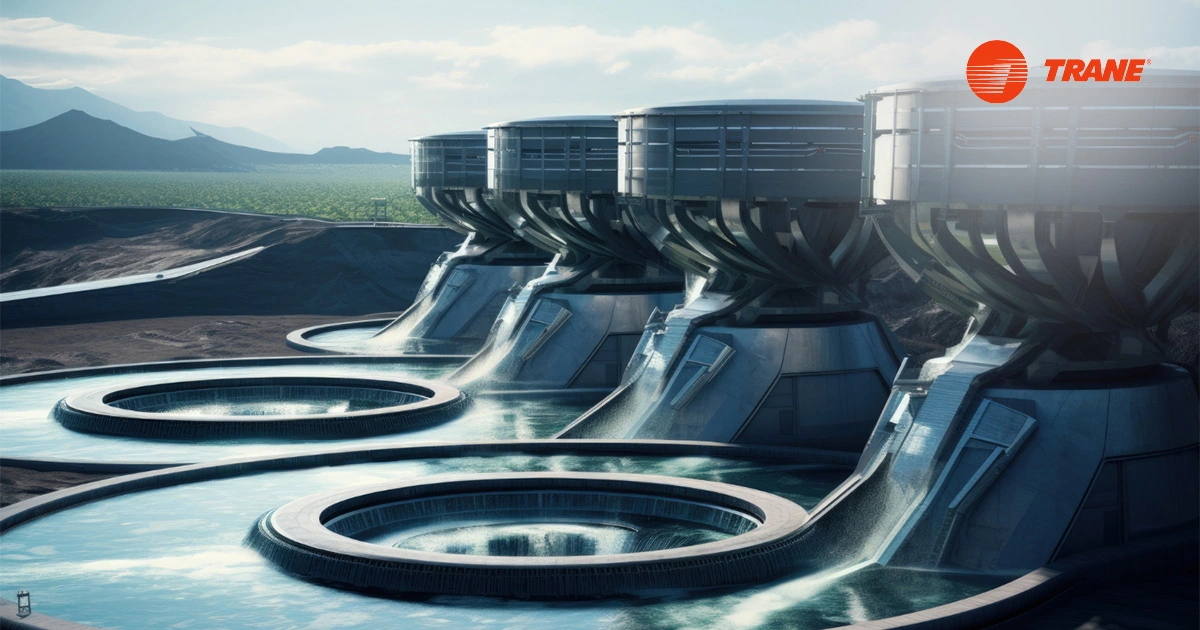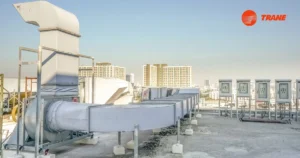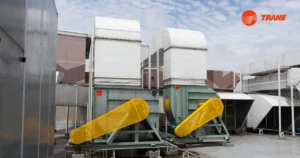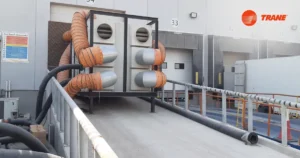Egypt has always been known as a land of resilience, but in recent years, its climate has been testing that reputation more than ever before. Summers are growing longer, hotter, and more unpredictable, making space cooling not just a convenience but a lifeline for homes, businesses, and critical industries. What once was seen as an optional comfort has now become central to the nation’s ability to function, thrive, and grow.
According to the World Bank, average summer temperatures in Egypt have increased by nearly 2°C over the past century, with urban heat islands in cities like Cairo amplifying the strain on residents and infrastructure. Heat waves have intensified in frequency and duration, creating enormous stress on healthcare systems, workplaces, and industrial operations. When the mercury climbs, productivity declines, food storage becomes risky, and public health challenges emerge almost overnight.
In this context, cooling is no longer a matter of preference. It is about security, safety, and sustaining Egypt’s economic progress.
Cooling Demand in Numbers
The International Energy Agency (IEA) estimates that cooling demand across the Middle East and North Africa could triple by 2050 if current trends continue. Egypt, with its rapidly growing population of more than 110 million, sits at the center of this rising curve. Urbanization, a youthful workforce, and ambitious infrastructure plans are all pushing demand for dependable cooling solutions.
- 40% of global cooling demand is expected to come from hot climate regions by 2030.
- Egypt’s urban population is forecast to grow to nearly 70% by 2040, significantly increasing cooling needs in residential and commercial sectors.
- Food and pharmaceutical cold chains in Egypt already account for billions in investment, underscoring the critical role of cooling in safeguarding health and reducing waste.
These figures tell a simple story: as Egypt’s development accelerates, its appetite for reliable and efficient cooling grows in parallel.
More Than Comfort: Cooling as Infrastructure
What sets this new era apart is the reframing of cooling as part of essential infrastructure. Schools, hospitals, manufacturing plants, and data centers cannot perform without effective cooling systems. For example, during the hottest months of the year, hospitals in Upper Egypt rely on precision cooling to protect patients and medical equipment. Similarly, the food processing industry requires uninterrupted cooling to maintain quality and meet both domestic and export demands.
This shift has elevated the role of partners like Trane Egypt, who combine decades of global expertise with local insight. By aligning technology with the unique climate challenges of the region, solutions extend far beyond the basics of comfort. They safeguard lives, protect economies, and enable innovation to flourish in high-heat environments.
The Sustainability Question
But there is another side to the story. Cooling consumes vast amounts of energy. Globally, it accounts for nearly 10% of electricity use, with the Middle East consuming far above the average due to climate conditions. Egypt is actively tackling this challenge by investing in energy-efficient systems and promoting sustainable infrastructure projects.
High-efficiency cooling equipment, smart controls, and sustainable refrigerants are now shaping industry conversations. The government’s Vision 2030 places emphasis on energy efficiency and environmental responsibility, making sustainable cooling not just an industry buzzword but a national mandate.
Trane, through its advanced solutions in Egypt, plays an important role here. By providing energy-efficient technologies that reduce both costs and emissions, the company ensures clients achieve not only operational excellence but also alignment with Egypt’s green transition goals.
Cooling in a Time of Transition
Another interesting trend is Egypt’s growing role as a hub for large-scale events and international projects. From sporting events to cultural showcases, reliable cooling has become a determining factor in success. Event venues, temporary structures, and outdoor gatherings all rely on flexible, scalable cooling solutions to ensure safety and comfort in demanding conditions.
Here, the agility of temporary systems, whether to support seasonal demand or address unexpected breakdowns; has become vital. Modern cooling infrastructure is no longer static. It must adapt to fluctuations, peaks, and emergencies, delivering resilience at every step.
Looking Ahead: Building a Cool Future
Egypt’s cooling journey is entering a decisive phase. As the population grows and industries expand, the role of cooling will deepen across every sector. For businesses, this means taking a proactive approach by adopting efficient, reliable, and future-ready systems. For the nation, it signals an opportunity to embrace technology that balances growth with environmental stewardship.
This is where experienced partners matter most. Trane Egypt, with its combination of innovative systems, deep local understanding, and decades-long presence in the region, continues to support businesses as they navigate this new reality. From healthcare and manufacturing to logistics and hospitality, the company’s solutions are designed to meet today’s pressing needs while preparing for tomorrow’s challenges. And when the unexpected arises, businesses know they can depend on flexible options such as chiller rental to keep operations running smoothly. Whether it’s bridging a gap during system upgrades or handling seasonal surges, these solutions give organizations the reliability and resilience they need to stay ahead.




